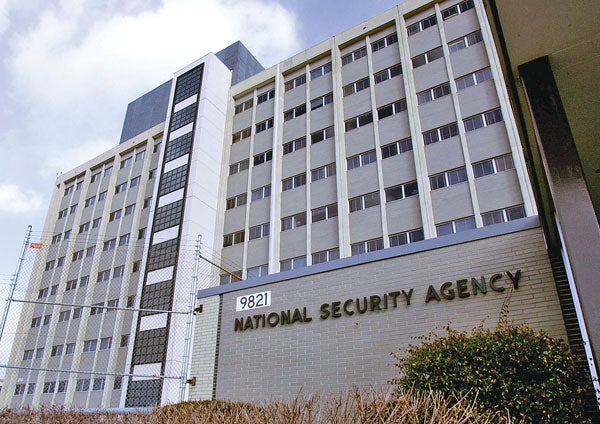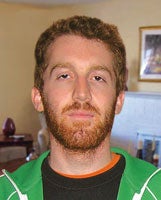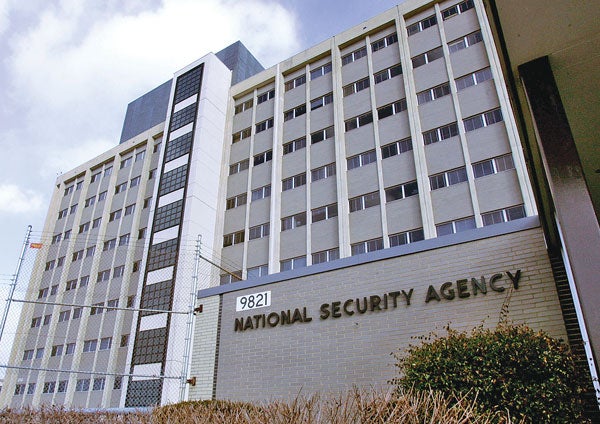FORT MEADE, MD—The director of the National Security Agency announced at a press conference Tuesday that the ongoing phone surveillance of Cincinnati resident Greg Wyckham has yielded “overwhelming and incontrovertible” evidence that the 37-year-old high-school teacher and married father of three is wasting money on a long-distance plan that does not suit his calling needs.

According to Lt. Gen. Keith B. Alexander, Wyckham, who caught the attention of authorities in July 2004 when he placed a call to his first wife, has spent an average of $75 a month on long distance, “when he could have been saving as much as $30 per billing period.”
Alexander cited additional examples of Wyckham’s reckless long-distance use, which included a late-afternoon call to his mother in Colorado last spring and several March 2005 calls to old college friends to plan a summer mini-reunion. In January, a lengthy conversation with his cousin in California cost nearly $10.
“We have stacks of logs showing phone calls placed on weekdays before 9 p.m., as well as calls made with flagrant disregard for the per-minute rate,” Alexander said. “In addition, not once did Mr. Wyckham ask his out-of-state friends and family members with the same long-distance carrier to join him in a money-saving service plan.”
Added Alexander: “Bear in mind that this is a man who earns only $43,220 a year. With both a Dodge minivan in desperate need of repair and the upcoming vasectomy to pay for, he should be more concerned about these expenses.”
NSA analyst Lawrence Reinhard, who headed the team conducting the wiretapping, said Wyckham has several cost-cutting plans to choose from.
“If Mr. Wyckham switched to a residential unlimited plan, such as the AT&T Unlimited Plus Plan, he’d be able to make all his long-distance calls for one low monthly fee of just $29.95,” Reinhard said. “He’d be able to take $20 off his bill in calls to his ex-girlfriend in Washington, DC alone.”

Reinhard also recommended that Wyckham consider switching his long-distance service over to Verizon, his cellular phone carrier. “In addition to their competitive rates, Verizon is now offering a special discount on long-distance night and weekend calls to their cell-phone subscribers,” Reinhard said. “But only for a limited time.”
Although the Wyckham eavesdropping was a closely guarded operation, Alexander revealed that the NSA considered asking the CIA and British intelligence to directly intervene in April after Wyckham accepted a collect call from his 16-year-old son Jeremy, studying in London as part of a foreign-exchange program.
“The collect call concerned us,” Alexander said. “There is no reason why an American traveling abroad should not be equipped with an international calling card, which can be purchased cheaply in corner stores everywhere.”
Added Alexander: “If Wyckham simply joined the Family Share Plan, he would not only save money himself, but also for his wife Shelly, Jeremy, the twins, Ashley and Courtney, and, if he were reasonably discreet, teacher’s aide Janet Molina, with whom he’s having an extramarital affair.”
Alexander said it is difficult for the NSA to keep its operations secret when Wyckham and other Americans do not take advantage of potentially enormous savings with a good long-distance plan.
“With companies like Skype and Vonage providing inexpensive Internet phone service, high long-distance bills are a senseless waste,” Alexander said. “Sometimes an agent wishes he could physically emerge from the phone receiver and shake some sense into these citizens, but that technology is at least 10 years away.”







